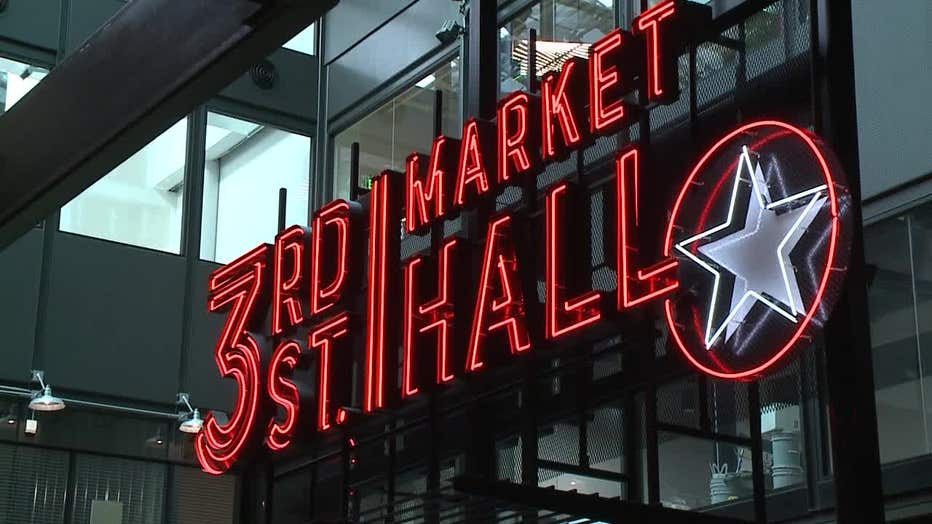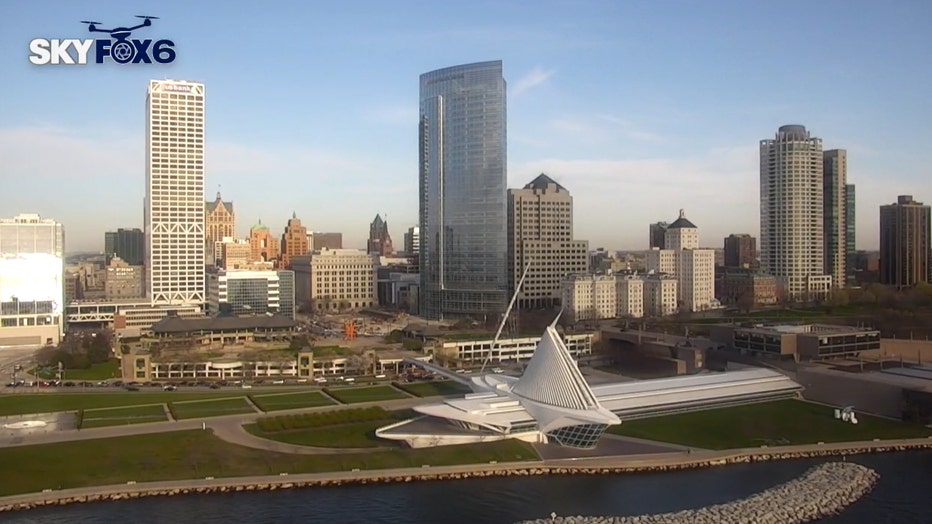Milwaukee budget cliff; Wisconsin revenue plan in the works

Milwaukee budget cliff; Wisconsin revenue plan in the works
A week that started with doomsday predictions for Milwaukee's budget ended with a plan from the state to send more money to its largest city.
MILWAUKEE - A week that started with doomsday predictions for Milwaukee's budget ended with a plan from the state to send more money to its largest city.
Shared revenue has been frozen for nearly 20 years, crunching municipal budgets. Milwaukee sees a big cliff coming next year.
When 3rd Street Market Hall opened, co-owner Omar Shaikh envisioned it as a downtown draw. That's why he supports investment in Milwaukee.
SIGN UP TODAY: Get daily headlines, breaking news emails from FOX6 News
"I’m really excited, because after two decades, you’re finally starting to see some positive conversations between city leaders and Republicans at the state," Shaikh said.
A bipartisan plan would boost the amount of state money that goes back to municipalities and give Milwaukee and Milwaukee County the option of increasing sales taxes.

3rd Street Market Hall, Milwaukee
The Metropolitan Milwaukee Association of Commerce (MMAC) was involved in the coalition to advance the legislation, working with Wisconsin Assembly Speaker Robin Vos and other lawmakers.
"I think it's a big win for everyone," said Vos (R-Rochester).
"The progress we’ve made is notable, in fact, it is unprecedented in modern history," said Milwaukee Mayor Cavalier Johnson.
FREE DOWNLOAD: Get breaking news alerts in the FOX6 News app for iOS or Android.
The city gamed out doomsday scenarios earlier in the week: If a projected $150 million 2024 budget gap isn't closed, it would mean cuts to libraries, police, fire and emergency services.
Now, a city spokesperson says:
"Legislative details continued to be worked on. We are hopeful the most dire scenarios will not play out."
Featured
Wisconsin shared revenue, Milwaukee sales tax increase plans unveiled
Wisconsin Assembly Republicans unveiled a plan to boost shared revenue to counties and municipalities, including a minimum 10% boost to every community in the state.
Everyone who lives, works or travels to Milwaukee County uses its services and infrastructure – but not everyone pays for it.
"Obviously we want it to be within reason. But a lot of times it’s tourists coming from out of state, and out of town, to come and pay for our infrastructure," said Shaikh. "From the conventioneers, the hoteliers, these are the ones paying for the infrastructure."
"Balance makes some sense," said Rob Henken, Wisconsin Policy Forum president.

Wisconsin Policy Forum has been sounding the alarm on Milwaukee's pension problems and lack of increasing state revenue for years. What's different now?
"The numbers here don’t lie. This is not a political issue anymore. This is a math issue," Henken said.
Henken added the state is in its best position in years, with a roughly $7 billion budget surplus making it easier for city, state and business leaders to come together.
Wisconsin Senate leadership said details are still being worked out, and the proposed legislation is not finalized. Not everyone is on board; Waukesha County's executive called it a bailout for Milwaukee's pension problem.
Statement from MMAC:
The state assembly’s proposal serves as a critical step in addressing budget gaps many communities are experiencing when attempting to fund vital services. Today in Milwaukee, there is a clear and present danger when it comes to funding budget lines for public safety, our parks and other items that have quality-of-life implications. Increasing local governments’ shared revenue and instituting a new sales tax – through a Milwaukee Common Council and Milwaukee County Board vote – serve as a clear and present solution to these issues.


